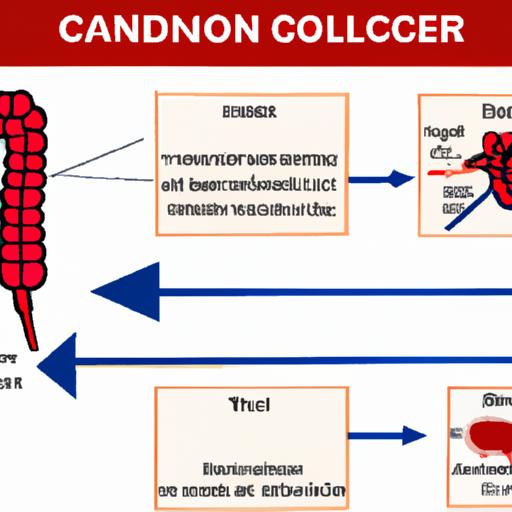
Recognizing the Warning Signs: Rectal Bleeding and Its Connection to Colon Cancer
When it comes to our health, it’s essential to be proactive and pay attention to any changes or symptoms that may arise. One of the potential warning signs of a serious health issue, such as colon cancer, is rectal bleeding. Rectal bleeding can be caused by a variety of factors, and while not all cases of rectal bleeding are indicative of colon cancer, it’s crucial to recognize the potential connection between the two and seek medical attention if you experience this symptom.
What is Rectal Bleeding?
Rectal bleeding is defined as the passage of blood through the anus. This can occur in various forms, including bright red blood in the stool, dark or tar-like stool, blood on the toilet paper, or blood in the toilet bowl after a bowel movement. The severity of rectal bleeding can vary, ranging from small amounts of blood that are only visible on toilet paper to more substantial bleeding that may require immediate medical attention.
What Causes Rectal Bleeding?
Rectal bleeding can be caused by a wide range of factors, including hemorrhoids, anal fissures, inflammatory bowel disease, diverticulosis, and colorectal polyps. However, it can also be a symptom of a more serious condition, such as colon cancer. Understanding the potential causes of rectal bleeding can help individuals recognize when it’s necessary to seek medical evaluation.
Connection to Colon Cancer
Colon cancer, also known as colorectal cancer, is the third leading cause of cancer-related deaths in both men and women in the United States. While there are various risk factors associated with the development of colon cancer, rectal bleeding can be a key warning sign. When colon cancer develops, it often begins as a small growth or polyp within the colon or rectum. As the cancerous cells grow and multiply, they can cause bleeding, which may manifest as rectal bleeding. This is why it’s crucial to recognize rectal bleeding as a potential symptom of colon cancer and seek medical evaluation to determine the underlying cause.
Recognizing the Warning Signs
While rectal bleeding can be alarming, it’s crucial to remember that not all cases of rectal bleeding are indicative of colon cancer. However, it’s essential to take this symptom seriously and seek medical evaluation to determine the underlying cause. In addition to rectal bleeding, there are other warning signs that individuals should be aware of, including changes in bowel habits, persistent abdominal discomfort, unexplained weight loss, and fatigue. If you experience any of these symptoms, it’s important to consult with a healthcare professional for further evaluation.
Early Detection and Screening
Early detection is crucial in the successful treatment of colon cancer. Regular screenings, such as colonoscopies, can help detect precancerous polyps or early-stage cancer, allowing for prompt treatment and improved outcomes. The American Cancer Society recommends that individuals at average risk for colon cancer begin screening at age 45. However, those with a family history of colon cancer or other risk factors may need to start screening at an earlier age.
If you experience rectal bleeding or any of the other warning signs of colon cancer, it’s essential to consult with a healthcare professional. They can perform a thorough evaluation, which may include a physical examination, blood tests, and imaging studies, such as a colonoscopy, to determine the underlying cause of your symptoms. By seeking prompt medical evaluation, you can receive an accurate diagnosis and appropriate treatment, if necessary. Early detection and intervention can significantly improve the prognosis for individuals with colon cancer.
Conclusion
Rectal bleeding can be a distressing symptom, and its connection to colon cancer makes it essential to recognize and take seriously. While not all cases of rectal bleeding are indicative of colon cancer, it’s crucial to seek medical evaluation to determine the underlying cause. By being proactive and attentive to potential warning signs, individuals can take steps to protect their health and seek the appropriate care if needed. If you experience rectal bleeding or other concerning symptoms, consult with a healthcare professional as soon as possible. Early detection and intervention can make a significant difference in the successful treatment of colon cancer.












